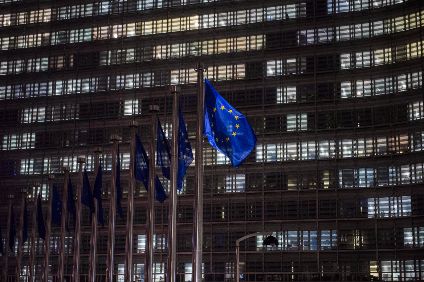
The European Commission has proposed UK and EU food companies would be able to trade food products freely across both markets into 2021 following Brexit.
A draft withdrawal agreement released yesterday gives reassurances over placing food on the EU market during and after the proposed transitional period – to December 2020. It also says geographical indications and other related protections should remain in force across the EU and the UK from 2021 and into the future.

Discover B2B Marketing That Performs
Combine business intelligence and editorial excellence to reach engaged professionals across 36 leading media platforms.
The comprehensive proposal includes a transitional period from 29 March 2019 – the date the UK will officially leave the EU – until 31 December 2020, when existing EU laws will continue to apply, and UK exporters maintain their current access to EU markets.
After December 2020, however, the bets are off – the additional time is supposed to give breathing space for the UK and the EU to negotiate a permanent post-Brexit agreement.
Under the Commission’s proposals (which does not predict any long-term deal – although this may still be agreed), most goods sold into the EU before 31 December 2020 are supposed to circulate freely afterwards. However, this promise does not include animal products, such as meat and dairy, which are specifically exempted from this commitment.
Meanwhile, under the draft, EU geographical indications, designation of origin, and traditional speciality guaranteed protections, including of British products, would continue to be recognised across the EU and the UK, once the transitional period had expired.

US Tariffs are shifting - will you react or anticipate?
Don’t let policy changes catch you off guard. Stay proactive with real-time data and expert analysis.
By GlobalDataThe Brussels-based EU industry association FoodDrinkEurope said any transitional arrangement should be “long enough to allow the sector to adapt fully both in the UK and in the EU”. FoodDrinkEurope wants to “maintain the status quo for as long as necessary, allowing existing trade and customs arrangements to continue largely unchanged until a new [comprehensive] trade agreement enters into force”, a spokesperson said.
There is potential controversy over the draft’s proposal EU laws apply in Northern Ireland after Brexit to preserve an open border with the Republic of Ireland. This would mean EU sanitary and phytosanitary controls would continue to apply in Northern Ireland, even if UK rules diverge, with Northern Ireland remaining within the EU customs union, while the rest of the UK would remain outside.
The UK’s Food and Drink Federation, which represents British food manufacturers, acknowledged Brussels’ proposals and is consulting with members, especially in relation to potential changes to the UK and Northern Ireland’s customs union membership.
“We are looking for four key outcomes – access to our valued EU workforce, a stable regulatory regime, continued frictionless trade across borders and a special deal with Ireland,” an FDF spokesperson told just-food.
Irish trade body Food Drink Ireland said any changes to the status quo will have an impact on trade. If the UK government sticks to its plans to quit the EU customs union after ceasing to be a member state, an FDI spokesperson said it would mean customs and food health controls – whether for a border across the Irish Sea or on the Northern Ireland-Republic of Ireland border.
The spokesperson stressed: “Food and drink products, particularly those of animal origin face additional veterinary checks, as well as customs controls.”
He argued the “fall-back option proposed by the EU in the absence of alternatives”, of Northern Ireland following EU laws, while the rest of the UK does not, preventing the creation of a hard land border with the Irish Republic, “is the only practical solution to no border on the island of Ireland; technical solutions are not realistic”.





